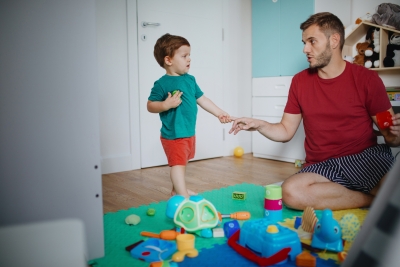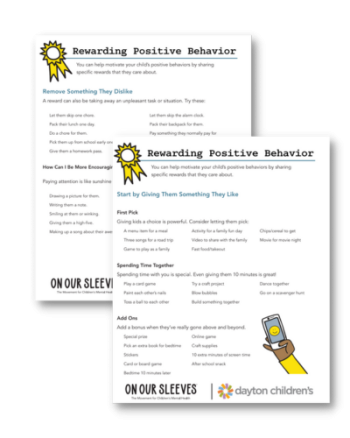6 steps for avoiding unwanted behavior

understanding your child’s behavior
When children act out, whether they’re 3 or 13, it can be challenging to know what to do. Once you understand more about why they act the way they do, you can react more calmly. And noticing and praising “good” or positive behavior can really help encourage them to change their behavior.
why are they acting like this?

Children act up or act out for a reason. Often, they misbehave because they can’t get something important to them (like attention or more decision-making ability) because it is controlled by a caregiver or other adult. Their behavior is a way to convince you, or another adult, to give them what they want.
And you probably know what happens when they don’t get what they want. They may throw a tantrum, have a meltdown, or roll their eyes – it’s all an attempt to get you to change your mind and give in to their demands.
Think about a lock and a key. You are the lock, a control point.
The child’s behavior is them trying out “keys” or different behaviors to fit the lock and get what they want.
Now that you’re thinking this way, you’ll see that sometimes children will start with the behavior that we want, like asking politely or pausing while we’re having another conversation. You may also see that if that first “key” isn’t given attention, they may move on to bigger behaviors or “keys.” Voices may raise or the amount of attitude or whining increases.
If those behaviors and keys don’t get them what they want, we can expect them to try even harder – with bigger or louder behaviors!
It’s tempting to give in to whining to avoid yelling. Or sometimes, it’s tempting to yell back to get them to stop. But you don’t have to get to that point.
6 steps to avoiding unwanted behavior

We can never eliminate “bad” or unwanted behavior, but we can reduce it. Here are some ideas to get you started.
- Kids’ mental health and behavior benefit from routines and structure. Having a consistent schedule so they know what to expect is helpful. Consider posting one in a central place or discussing the schedule regularly.
- Make sure they’re getting enough sleep. Are they eating and drinking enough? Having these basics covered will help a child’s mood.
- Are they getting plenty of attention and affection? Kids thrive when they know that they’re cared for. Handing out high fives and hugs can be reassuring.
- Set clear expectations. Having a visitor over? Going to a park for a playdate with a new friend? Going to a relative’s house for a weekend? Get specific ahead of time about how you’d like your child to behave. For example, “When we meet your friend, I’d like you to say hi and ask what they’d like to do first” or “At grandma’s house, we ask before we get ourselves a snack.”
- Offer lots of praise when you see the behavior you want. If your child is being quiet in the library, rather than just a “good job”, trying to be specific, like, “I really appreciate how you are using an inside voice here at the library.” Attention and praise motivate a child to repeat that behavior.
- Give rewards for positive behavior. This could be giving them something they like (time on the playground, a favorite game) or taking away something they don’t like (giving them a homework break or a day without chores).
free download! reward positive behaviors tip sheet

While no child will behave perfectly, encouraging and praising positive behavior may help increase it in your home or classroom. And that will have mental health benefits for everyone. You can help motivate your child’s positive behavior by sharing specific rewards that they care about!
Download and print this free guide to help you choose the rewards that will best motivate your child. Click here to download the guide in Spanish.
care that goes above and beyond
Because every child deserves care that goes above and beyond, Dayton Children’s provides compassionate, expert care for kids of all ages. Find a provider, schedule an appointment, or learn more about conditions we treat today.




